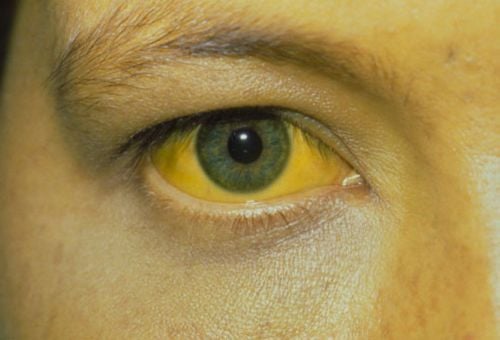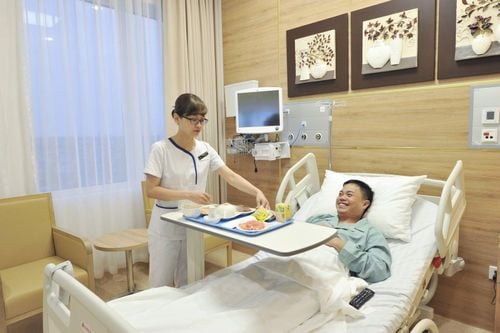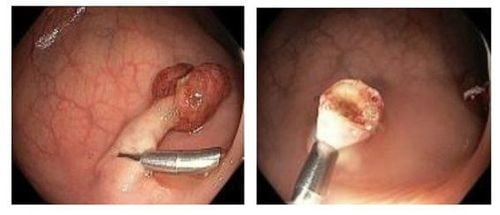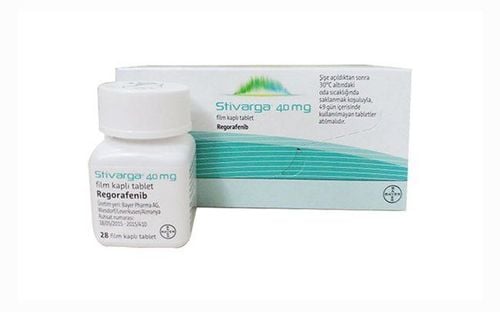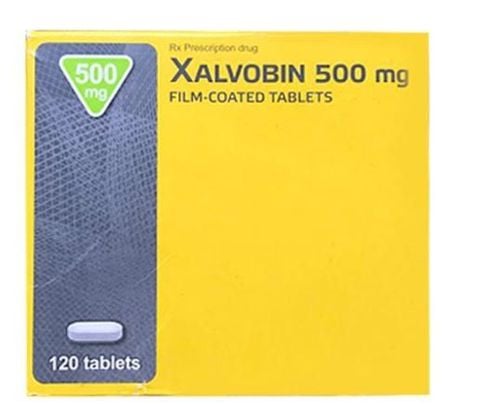This is an automatically translated article.
The article is professionally consulted by Master, Doctor Nguyen Thai Binh - Gastroenterologist - Department of General Surgery - Vinmec Ha Long International General Hospital. The doctor has more than 20 years of experience working in the specialty of abdominal surgery.Colorectal cancer is a dangerous disease that needs to be detected early and treated promptly. Laparoscopic surgery for colon cancer is one of the effective treatment methods prescribed by doctors for patients.
1. Colonectomy for cancer treatment
Colorectal cancer is an abnormal growth in the colon or rectum. Most cases of colorectal cancer stem from polyps that grow and form cancer if not treated early.Colorectal surgery is aimed at treating diseases in this location such as mild disease, which is polyps, sigmoid diverticulitis, prevention of cancer development, and treatment of malignancy, which is colorectal cancer. .
Depending on the specific disease of each patient, colectomy surgery can be indicated right colectomy, left colectomy, sigmoidectomy, transverse colon and possibly total colectomy depending on the patient's condition. depends on the extent of the damage caused by the cancer. In the past, colectomy in the treatment of rectal cancer was an open surgery, causing a large incision and scar for the patient, as well as leaving many complications after surgery.
Currently, most cases can be indicated for laparoscopic surgery, limiting scarring, reducing pain after surgery, helping the recovery process be faster than open surgery. And during laparoscopic colectomy, the doctor can completely switch to open surgery if there are problems that need to be resolved.
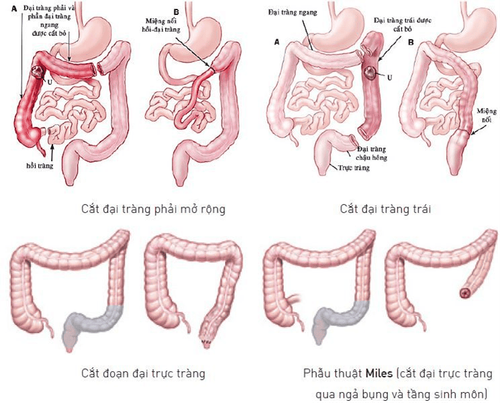
2. Types of colectomy surgery in cancer treatment
2.1 Transverse colectomy Transverse colectomy can be performed but rarely: Pelvic colectomyResection of the entire colon or rectum. The Miles surgery is the removal of the entire rectum and pelvis through the abdomen and perineum.
2.2 Left colectomy surgery Left colectomy is the removal of the left transverse colon, splenic flexure, descending colon and mesentery respectively by laparoscopic technique. Restoration of the gastrointestinal tract by anastomosis of the transverse colon and the sigmoid colon. Laparoscopic left colectomy is most often used for tumors on the left side of the transverse colon, splenic flexure, and descending colon. Or in other cases such as necrotic intussusception, mesenteric tumor, colonic diverticulum.
2.3 Laparoscopic right colectomy Right laparoscopic colectomy involves removing the right ascending colon and similarly stabilizing the gastrointestinal tract after removal of the right colon. Left and right colectomy is contraindicated in case the tumor is too large, the tumor has metastasized and other nearby organs, reaching the peritoneum cannot be removed. In case the patient is too old and weak or has serious illnesses such as heart failure, respiratory failure, etc., it will not be possible to perform laparoscopic colectomy.
3. Common risks after colorectal surgery for cancer treatment
Like other surgeries, colorectal surgery is effective in treating colorectal cancer, but the patient may face some complications such as:Damage to nearby organs Postoperative bleeding Infection Intra-abdominal abscess Peritoneal infection Hernia at old incision Intestinal obstruction due to scar tissue formation after surgery. Therefore, after laparoscopic left and right colectomy, patients need to be specially monitored in the postoperative room by doctors and nurses. If the vital signs are stable and the patient is awake, he will be transferred to the department for continued care and monitoring.
4. Recovery after laparoscopic left and right colorectal surgery
Most patients 1 day after surgery can get up and walk, gently exercise to stimulate bowel movements and make blood circulation easier after surgery. Patients need to be fed intravenously until they can eat and drink normally again. Patients with laparoscopic surgery usually recover faster than open surgery, most can eat snacks 4-5 days after surgery, even faster.During the recovery process, the patient needs to be given pain medication for a few days, depending on the individual's condition that the doctor prescribes. And patients can be discharged from the hospital 5-7 days after surgery, return to normal activities within 1-3 weeks based on the fast or slow recovery process in each person. In order to fully recover from colorectal surgery in the treatment of colorectal cancer, patients should avoid exertion as well as carry heavy objects for 4-6 weeks and should continue to be monitored and treated after that according to the instructions. prescription of the treating physician.
5. Some notes when performing laparoscopic colorectal surgery

Doctors with many years of experience in colorectal cancer surgery. With a doctor and a professional surgical team, performing laparoscopic colorectal surgery at Vinmec, patients can be completely assured of the effectiveness of treatment and subsequent recovery.
The treatment of colorectal cancer with laparoscopic surgery should be done as soon as possible. Patients avoid large tumors or metastases, surgical treatment can hardly be performed effectively.
Please dial HOTLINE for more information or register for an appointment HERE. Download MyVinmec app to make appointments faster and to manage your bookings easily.





